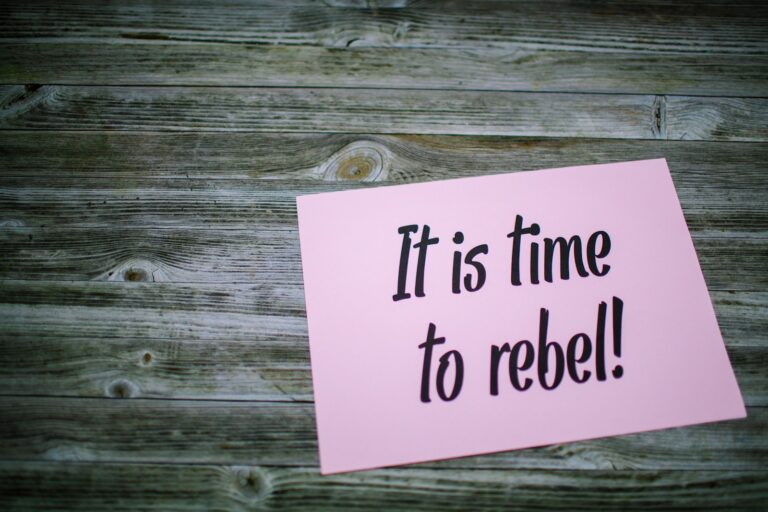-
Table of Contents
Ignite Passion, Drive Change, Find Your Cause for Action.
Introduction
Finding Your Cause for Action involves identifying the core motivation or purpose that drives you to make a meaningful impact. It requires introspection to understand your values, passions, and the issues that resonate deeply with you. By discovering this cause, you align your efforts with a clear sense of direction, enabling focused and purposeful action that contributes to personal fulfillment and positive change in the world.

Identifying Your Core Values to Discover Your Cause
Finding your cause for action is a bit like dating—you have to know what you truly value before you can commit without regret. Imagine swiping right on a cause just because it looks good on paper, only to realize later that it’s not your cup of tea (or your preferred brand of coffee). To avoid that awkward mismatch, the first step is identifying your core values. These are the guiding principles that make you, well, you. They’re the invisible compass that points you toward what really matters, whether it’s justice, creativity, kindness, or the noble pursuit of never-ending pizza.
Now, before you roll your eyes and think, “Core values? Sounds like something from a self-help book I skimmed once,” hear me out. Core values aren’t just corporate jargon or a buzzword tossed around in team-building exercises. They’re the secret sauce that flavors your decisions, your passions, and yes, your causes. When you align your cause with your core values, you’re not just volunteering or donating out of obligation—you’re diving in with enthusiasm, like a kid spotting the ice cream truck on a hot day.
So, how do you figure out what your core values are? Start by reflecting on moments when you felt truly alive or proud. Maybe it was standing up for a friend, creating something from scratch, or even binge-watching a documentary that made you rethink your life choices. What was it about those moments that resonated with you? Was it fairness, innovation, empathy, or maybe a dash of stubbornness? Jot down a list of these feelings and themes. Don’t worry if it feels a bit like a personality quiz on steroids; this is your personal treasure map.
Next, try to narrow down your list to the top three to five values. Think of it like packing for a trip—you can’t bring your entire wardrobe, so you pick the essentials that suit your destination. These core values will serve as your North Star when choosing a cause. For example, if “environmental stewardship” is on your list, you might find yourself drawn to causes that protect forests, oceans, or endangered species. If “social justice” lights your fire, then organizations fighting inequality or advocating for human rights might be your jam.
It’s also helpful to consider what makes you roll your eyes or cringe. Sometimes, knowing what you don’t stand for is just as important as knowing what you do. If dishonesty or apathy makes your skin crawl, you’ll want to steer clear of causes that don’t align with transparency or active engagement. This negative filtering can save you from wasting time and energy on causes that leave you feeling meh.
Once you’ve identified your core values, test them out by volunteering, attending events, or chatting with people involved in causes that pique your interest. Think of it as dating again—going on a few casual dates before deciding if you want to commit long-term. This hands-on experience will help you see if the cause truly resonates with your values or if it’s just a fleeting crush.
In the end, finding your cause for action by identifying your core values isn’t about ticking boxes or following trends. It’s about discovering what makes your heart beat a little faster and your soul do a happy dance. When your cause aligns with your core values, you’re not just making a difference—you’re making your difference. And that, my friend, is the kind of commitment worth swiping right for.
Steps to Align Your Passion with Meaningful Action
Finding your cause for action can sometimes feel like trying to find a needle in a haystack—except the haystack is on fire, you’re wearing oven mitts, and the needle might actually be a metaphor for your life’s purpose. But fear not! Aligning your passion with meaningful action doesn’t have to be a dramatic quest worthy of a fantasy novel. In fact, it can be as simple (and as fun) as following a few steps that help you connect what makes your heart sing with something that actually makes a difference.
First things first, take a moment to figure out what lights you up. No, not literally—put down the matches. Instead, think about what activities make you lose track of time or what topics you can’t stop talking about, even if your friends start giving you that “here we go again” look. Maybe it’s rescuing stray animals, advocating for climate change, or finally convincing your neighborhood to install more public benches (because who doesn’t love a good sit-down?). Jot these down because they’re your starting point. Passion without direction is like a GPS without signal—lots of potential, but you’re probably going to end up in a cornfield.
Once you’ve identified your passions, it’s time to get curious. No, not the cat kind that ends up stuck in a tree. Instead, dive into research. Look for organizations, movements, or causes that align with your interests. This is where the internet becomes your best friend and worst enemy—because while you’ll find amazing opportunities, you’ll also discover that there are approximately 7,000 ways to save the planet, and each one claims to be the most urgent. Don’t get overwhelmed. Instead, pick a few that resonate with you and dig a little deeper. Read stories, watch videos, or even reach out to people involved. This step is like dating your cause—get to know it before you commit.
Now, here comes the fun part: taking action. But before you start handing out flyers or organizing flash mobs, consider your strengths and resources. Are you a social butterfly who thrives on connecting people? Maybe organizing events or spreading awareness on social media is your jam. Prefer working behind the scenes? Perhaps writing, fundraising, or data analysis suits you better. Aligning your natural talents with your cause not only makes the work more enjoyable but also more effective. After all, you wouldn’t ask a cat to fetch the newspaper, right? (Though if your cat can do that, please share the secret.)
As you start engaging, remember that meaningful action doesn’t have to be grandiose. Sometimes, it’s the small, consistent steps that create the biggest ripple effects. Volunteering a few hours a week, donating a portion of your paycheck, or simply sharing information with your network can all add up. Plus, these manageable commitments help prevent burnout—a common side effect of trying to save the world in one weekend.
Finally, keep an open mind and be ready to evolve. Your passions might shift, or you might discover new causes that speak to you even louder. That’s perfectly okay. Life is less about finding one perfect cause and more about staying curious and engaged. So, if your initial cause doesn’t feel quite right after a while, don’t be afraid to pivot. Think of it as swiping right on your purpose until you find the perfect match.
In the end, aligning your passion with meaningful action is less about having all the answers and more about taking those first imperfect steps. So go ahead, embrace the awkward beginnings, laugh at the missteps, and celebrate the small victories. Your cause is out there, waiting for you to find it—and maybe even to rescue a few metaphorical (or literal) cats along the way.
Overcoming Obstacles to Commit Fully to Your Cause
Finding your cause for action is like discovering the secret sauce that makes life a little spicier, but committing fully to that cause? Well, that’s where the real adventure begins—and sometimes, the real comedy. Let’s be honest: overcoming obstacles to dive headfirst into your passion isn’t always a walk in the park. More often, it feels like trying to sprint through a swamp while wearing roller skates. But fear not, because with a little humor and a lot of grit, you can navigate the mess and come out the other side ready to champion your cause like a pro.
First off, let’s talk about the sneaky little gremlins called self-doubt and procrastination. These two are the dynamic duo of distraction, always ready to whisper, “Maybe tomorrow,” or “Are you sure you’re qualified?” in your ear. The trick here is to recognize them for what they are: uninvited party crashers. When self-doubt shows up, imagine it as a tiny, overly dramatic soap opera actor who’s just craving attention. Give it a polite nod, then get back to your mission. Procrastination, on the other hand, is like that friend who promises to help you move but never actually shows up. You have to set boundaries—schedule your work time, break tasks into bite-sized pieces, and reward yourself with something fun (yes, even if it’s just a dance break in your living room).
Conformity and Rebellion: Understanding Social Influence in Groups
Conform or Rebel – Which Is Wiser? – Mindtools
Rebellion – Therapedia – Theravive
Another obstacle that often trips people up is the fear of failure. It’s the big, scary monster under the bed that makes you want to hide your cause in a closet and pretend it never existed. But here’s a little secret: failure is just success in disguise, wearing a ridiculous costume. Every misstep is a chance to learn, grow, and maybe even laugh at yourself a little. Remember, even the most famous activists and changemakers have face-planted more times than they can count. The key is to get back up, dust off your metaphorical cape, and keep going. After all, if superheroes gave up every time they stumbled, we’d have a lot fewer comic books.
Time management is another sneaky villain in the story of commitment. Life loves to throw curveballs—work deadlines, family obligations, unexpected Netflix marathons—that can derail even the most passionate person. The solution? Embrace the art of saying “no” without guilt. Your cause deserves your energy, but so do you. Carve out dedicated time slots for your mission, and treat them like sacred appointments. If that means turning off your phone or hiding from your email for a bit, so be it. Your cause will thank you for showing up consistently, even if it’s just in small, steady steps.
Lastly, don’t underestimate the power of community. Going it alone can feel like trying to juggle flaming torches while riding a unicycle—impressive but exhausting. Surround yourself with people who get your passion, who will cheer you on, and who won’t mind when you vent about the latest obstacle. Sometimes, just knowing you’re not alone in the struggle is enough to keep you moving forward with a smile (or at least a smirk).
In the end, overcoming obstacles to commit fully to your cause is less about perfection and more about persistence—with a generous sprinkle of humor. When you can laugh at the chaos, shrug off the setbacks, and keep your eyes on the prize, you’ll find that your cause isn’t just something you do; it becomes a part of who you are. So, lace up those roller skates, embrace the swamp, and get ready to make some waves—because your cause is waiting, and it’s going to be one heck of a ride.
Non-Conformist or Rebel? – Decoding Creativity
What’s the difference between being a non-conformist and a rebel?
Conclusion
Finding your cause for action is essential for creating meaningful impact and driving sustained motivation. It aligns your values with purposeful goals, fosters resilience in the face of challenges, and inspires both personal growth and collective change. Ultimately, identifying a cause that resonates deeply empowers you to contribute authentically and make a lasting difference in the world.






